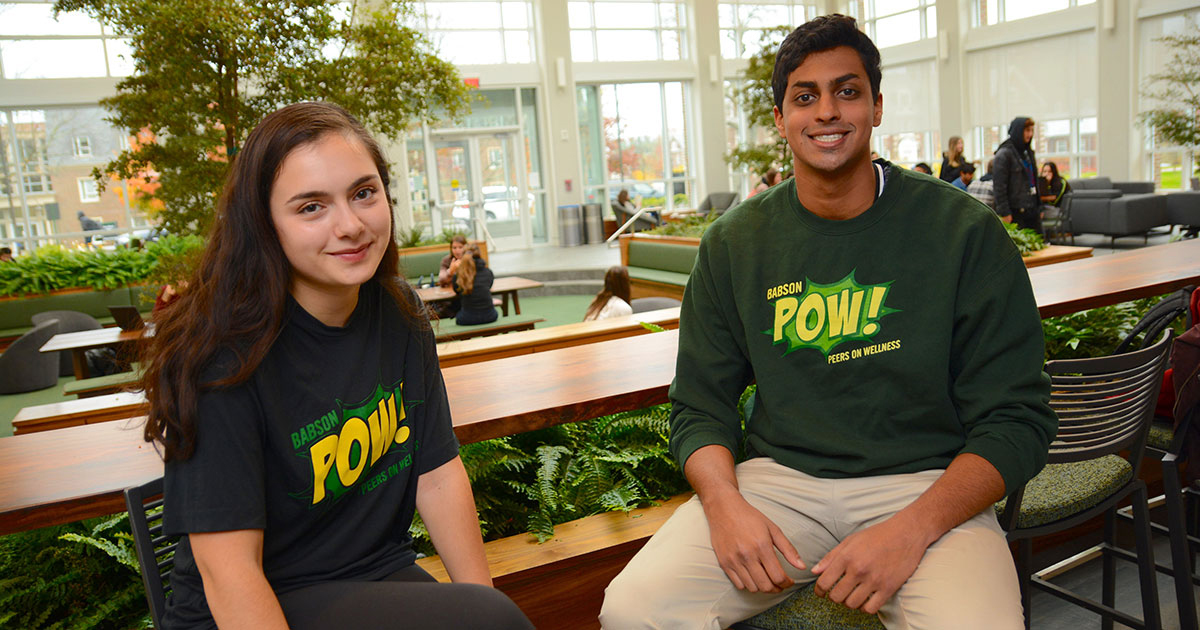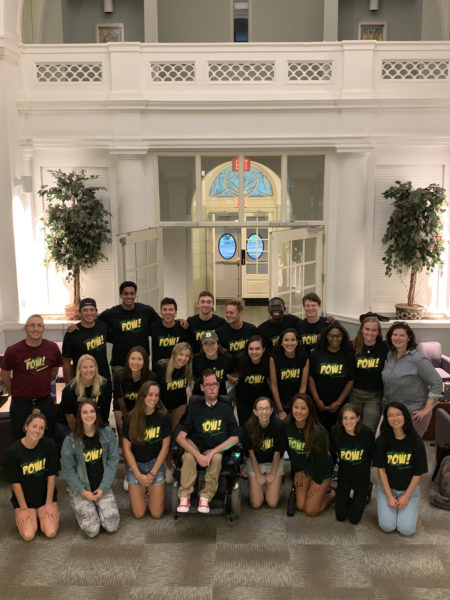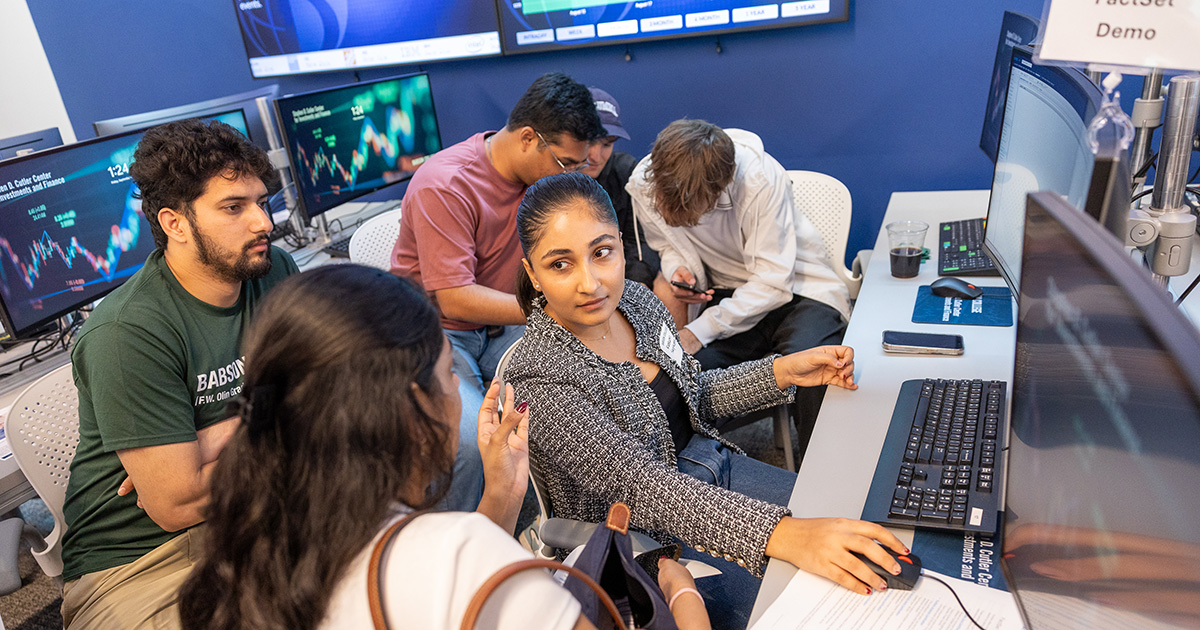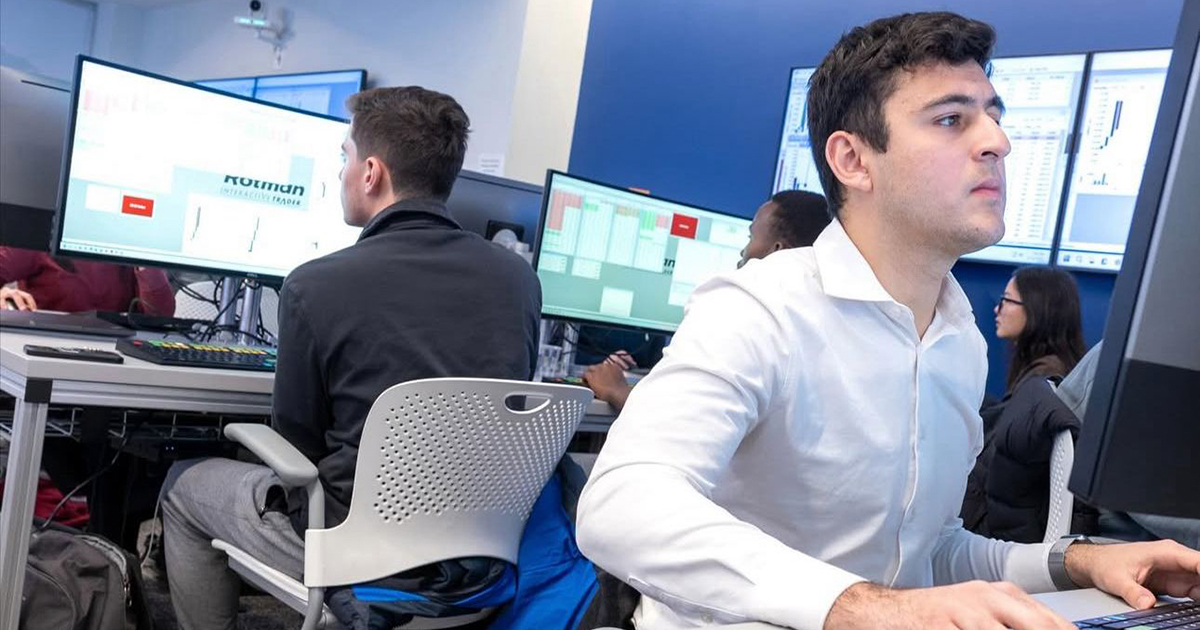Leaning on Your Peers

Kalyan Ramkumar ’20 and Catherine Ferri ’21 may have very different academic and extracurricular interests, but they share a common bond when it comes to student health and wellness.
Ramkumar, Ferri, and a team of 21 other peer educators and role models call themselves POWs, or more formally, Peers on Wellness.
One for All
“Super inclusive.” That is how Ramkumar describes the POWs, made up of students from all walks of life, varying ages, friend groups, organizations, and affiliations.
“It’s about being someone your fellow students feel comfortable going to,” added Ferri.
Ramkumar is a senior at Babson, and a third-year POW. Ferri is a junior, and excited about her first year with the group.
Joined by Elise Brucato, assistant director of Wellness and Prevention Services at Babson, Ramkumar and Ferri recently discussed what it means to be in Peers on Wellness, and more importantly, why having trusted peer resources on campus makes all the difference.
The Power of Peers on Wellness
 Brucato says peer-to-peer learning is much more powerful than other forms of education administrators can provide alone. The students agree.
Brucato says peer-to-peer learning is much more powerful than other forms of education administrators can provide alone. The students agree.
“Your peers are people you might respect or people you take a lot more from than maybe a random person you’ve never met before,” said Ramkumar.
For Ferri, she attributes her role to that of a connector—one whom other students can come to when they don’t know where to turn.
“Not every student comes to Babson knowing that if they have an issue or concern, we have a lot of resources available on campus,” said Ferri. “It’s important to connect their needs with resources, and to make them aware they exist.”
Ramkumar also noted the positive influence POW has had on his and others’ lives, well beyond the walls of Babson’s campus. Once, while in a foreign country, Ramkumar’s friend dealt with “a bad situation,” he shared, and he knew what to say. “If I wasn’t in POW, I wouldn’t have known how to handle it.”
“When I see someone in trouble or not doing well … on campus or not … I have the educational values to help them,” he added.
To Teach Is to Learn
Of their favorite Peers on Wellness activities, both Ferri and Ramkumar love Fresh Check Day. This national initiative is an uplifting mental health promotion and suicide prevention event that features peer-to-peer support, resources, and community-wide engagement.
“We have a lot of fun activities, (and it) keeps students informed and educated on suicide prevention and mental health in a way that is engaging and gets them to participate,” said Ferri.
“It’s a really happy day (and) it’s very different than anything else we do. People can go and get out of the space they’re in,” added Ramkumar.
Orientation also tops their list—a time when POWs get the opportunity to become true role models for the newest community members at Babson.
“As an advisor, the orientation sessions are really powerful to watch,” added Brucato. “Seeing (a POW) present at an orientation workshop, and then seeing them do it again their senior year and how much they’ve developed in confidence … it feels really good to see (their) transformation.”
Beyond events and orientation, POWs are continually working toward personal and professional development. Some lead subcommittees, like marketing, group development and communication, and publications. Ramkumar is a member of the publications committee and works on the development of The Stall Street Journal—a popular and entertaining health and wellness resource found across campus on the back of bathroom stall doors.
Others submit for, and present at, student conferences, like the upcoming BACCHUS Initiatives of NASPA General Assembly, where six Babson POWs will host a session on restorative practices.
At the end of the day, student educators just enjoy being a part of the POW community—one that is “very inclusive, no matter what,” said Ramkumar.
“There’s no exclusivity in anything we do,” he shared. “We are a family.”
Posted in Community



